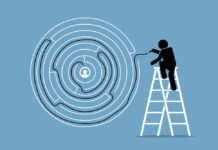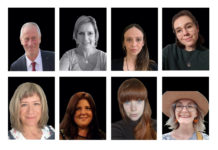A Self-Help Version of EMDR Could Make Healing from Trauma Easier
Se-REM is a self-help version of EMDR that uses sound instead of eye movement for bilateral stimulation. My clients have reported finding it helpful for healing from trauma.
Mental Health Survival Kit, Chapter 5: Survival Kit for Young Psychiatrists in a Sick...
Peter Gøtzsche discusses the ways in which young psychiatrists can stand up to the system and fight for change in psychiatry.
The Politics of Distress: A Discussion With Dr. James Davies on His New Book,...
James Davies on the medicalization and individualizing of distress and its connection to neoliberal ideology, and the need to focus on pervasive inequality and other social causes.
How Far Has Psychiatry Really Come? Historical Practices Versus Modern-Day Psychiatry
The basic assumptions behind unethical practices like lobotomies and insulin shock therapy are still the foundation on which psychiatry’s main treatments are built today.
An American History of Drugs and Addiction, Part 7: The Harm Reduction Revolution
Many of the harms associated with drugs were very much rooted in policy choices rather than in the nature of the drugs being used, or even addiction in general.
Mental Health Survival Kit, Chapter 4: Withdrawing from Psychiatric Drugs (Part 6)
Peter Gøtzsche gives advice on what withdrawal symptoms may look like and explains the dangers of—and alternatives to—forced treatment.
EMDR in a Nutshell: Healing from Trauma
Rather than medicalizing distress, EMDR provides a way of healing from trauma. EMDR isn't about trying to treat the symptoms of an illness. It's about healing from the root cause.
The Transformational Qualities of Hearing Voices Groups
Results from a national study show the transformational qualities of Hearing Voices groups, including their egalitarian structure and the genuine connection they foster.
FDA Approves Failed Alzheimer’s Drug
The FDA approved Biogen's failed drug aducanumab, overriding the 10-0 recommendation of its own advisory committee. Three panel members resigned in protest.
Psychotherapy Is Safer and Less Expensive Than Drug Treatment
In 1991, we conducted a study and found that psychotherapy saved money compared with drug treatment. We also found rampant overprescribing.
Mental Health Survival Kit, Chapter 4: Withdrawing from Psychiatric Drugs (Part 5)
Withdraw from psychiatric drugs at your own speed—according to what you feel. Don’t reduce again before you feel stabilised on the previous dose.
A Review of “Mud Flower: Surviving Schizophrenia and Suicide Through Art”
In "Mud Flower," Meghan Caughey seeks an ethics centered on the valuation of madness—and on art as one communicative pathway for values—for the muddy waters discarded by society.
Mental Health Survival Kit, Chapter 4: Withdrawing from Psychiatric Drugs (Part 4)
Psychiatrists have made hundreds of millions of people dependent on psychiatric drugs and yet have done virtually nothing to find out how to help the patients come off them again.
Lessons from the Pandemic: Panic Attacks Are Not Random
The ease and confidence with which many clients assume they are prone to panic attacks reflects larger cultural trends truncating and framing human suffering in medicalized terms.
Modern Psychiatry’s Allure: It Tells People What They Want to Hear
Could psychiatry’s medical model owe its popularity to wishful thinking? Could it work so well for people (at some deeper level), that they’re willing to overlook its illogic/flaws?
Mental Health Survival Kit, Chapter 4: Withdrawing from Psychiatric Drugs (Part 3)
Cochrane has no interest in a review about safe withdrawal of depression pills but did its utmost to defend the psychiatric guild, its many false beliefs, and the drug industry.
Does Official Recognition of Peers Undermine Their Work?
Recognition of peers under Medicaid could undermine their interventions by morphing them into a hybrid of traditional medical and clinical recovery principles.
It’s All About Rights—or Should We Say “Unequal Privileges”
On May 26, MindFreedom will partner with “I Love You, Lead On” to host the fifth in an educational series to create cross-disability understanding of common themes and initiatives.
Mental Health Survival Kit, Chapter 4: Withdrawing from Psychiatric Drugs (Part 2)
Peter Gøtzsche: The MIND organization in Denmark and the psychiatric guild suppressed information regarding the discontinuation of psychiatric drugs.
Shining a Light on Numbers Needed to Treat (NNT)
With an NNT of 7, one out of every seven people given an SSRI would benefit from the treatment, while the other six would be needlessly exposed to the adverse effects.
The ERNI Declaration: Making Sense of Distress Without “Disease”
The ERNI (Emotions aRe Not Illnesses) declaration is based on the idea that distress does not equate to disease, dysfunction, dysregulation, or chemical imbalance.
Remembering Jay Mahler
“I’ve spent 58 years in the public mental health system—10 years surviving it and 48 trying to change it.” That’s how Jay Mahler—psychiatric survivor, activist, leader—described his experiences.
Mental Health Survival Kit, Chapter 4: Withdrawing from Psychiatric Drugs (Part 1)
Very few doctors know anything about withdrawal and make horrible mistakes. If they taper at all, they do it far too quickly because the few guidelines that exist recommend far too quick tapering.
Current Anti-Stigma Campaigns Hinder Withdrawal from Psychotropic Medication
Anti-stigma campaigns reinforce a belief that people with mental health issues must have treatment and thus, push discussion of withdrawal and negative aspects of psychiatric drugs into anonymous spaces.
Radical Acts of Community Healing and Self-Love
Self-love became a radical and revolutionary act of activism against this system. At its foundation was the rejection of “disease” as a label to define the uniqueness of my mind.

































